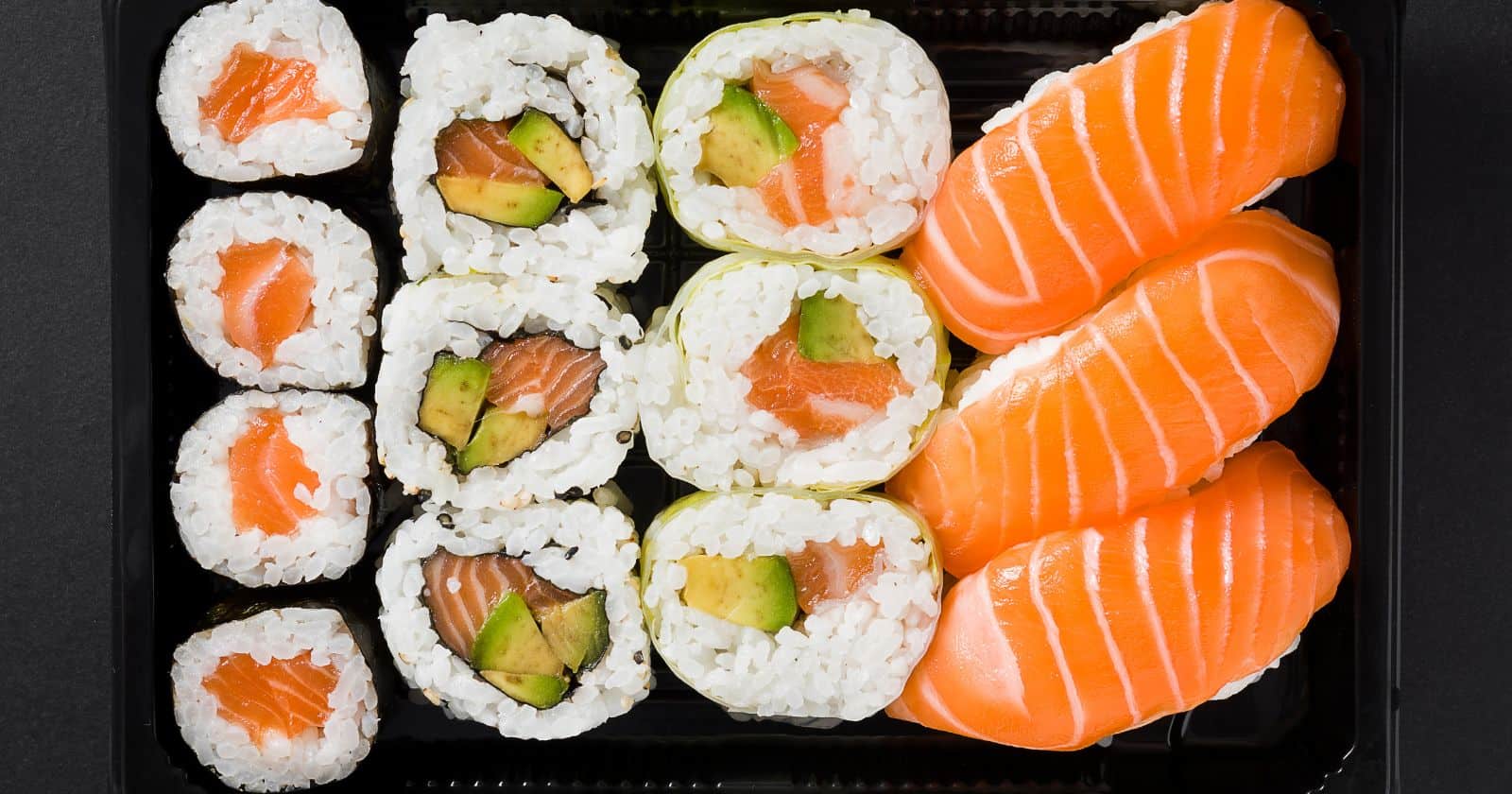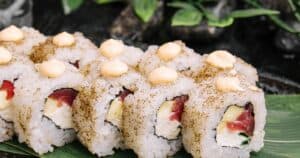Hey readers! If you love sushi as much as I do, you may have wondered: Is sushi high in cholesterol? Let’s dig in and find out.
The short answer is: it depends. Sushi can be low or high in cholesterol based on the ingredients.
- Sushi with fish or seafood is typically low in cholesterol and high in nutrients. Fish has healthy fats that are good for your heart!
- But sushi with creamy sauces or fried toppings can end up high in cholesterol. Things like mayo, tempura, or fatty meats add a lot of cholesterol.
Here’s a cholesterol breakdown for common sushi rolls:
- 1 piece of nigiri sushi: Around 1 mg cholesterol
- California rolls: 14 mg cholesterol per 100 grams
- Spicy tuna rolls: 6.49 mg cholesterol per 100 grams
The takeaway: Stick to sushi with lean protein and minimal creamy sauces or fried add-ons. This way you can enjoy all the delicious flavors without going overboard on cholesterol!
There’s a lot more to dive into here. Keep reading for all the nitty gritty details on sushi ingredients and cholesterol. Grab your chopsticks and let’s learn together!
How Sushi Ingredients Impact Cholesterol Levels
Sushi is a broad term that covers many types of rolled, wrapped, and topped seafood creations. With so many potential recipe combos, cholesterol counts can vary wildly.
The base ingredients of sushi are not high in cholesterol. Fish, seafood, rice, nori seaweed, and vegetables are all naturally low in cholesterol.
For example, a 3-ounce serving of salmon sashimi contains just 48 mg of cholesterol. That’s 16% of the recommended 300 mg daily limit.
It’s the sauces, fried foods, and fatty meats that boost sushi’s cholesterol levels. Ingredients like:
- Mayonnaise
- Cream cheese
- Tempura batter
- Fatty tuna or salmon
- Masago (smelt fish eggs)
Smearing on creamy sauces or deep frying sushi toppings adds significant cholesterol. A California roll gets 14 mg of cholesterol per 100 grams from its mayo-based sauce.
Meanwhile, spicy tuna rolls get cholesterol from the fatty tuna. A 100 gram serving packs 6.49 mg cholesterol.
So to keep your cholesterol down, opt for sushi with lean proteins and minimal creamy or fried add-ons.
Cholesterol Counts in Popular Sushi Rolls
Wondering just how much cholesterol is hiding in your favorite sushi rolls? Here are the counts for some popular picks:
Nigiri (1 piece):
- Salmon: 5 mg
- Tuna: 3 mg
- Shrimp: 1 mg
Maki Rolls (1 roll):
- Cucumber roll: 2 mg
- Spicy salmon roll: 15 mg
- Shrimp tempura roll: 18 mg
- California roll (with real crab): 10 mg
- Philadelphia roll (with salmon): 15 mg
Specialty Rolls (1 roll):
- Rainbow roll (no fish eggs): 12 mg
- Dragon roll (with eel): 17 mg
- Dynamite roll (with yellowtail): 19 mg
As you can see, rolls with fried shrimp tempura or fatty fish like salmon and eel tend to be higher in cholesterol.
Going easy on spicy mayo sauce also helps keep rolls like the California in check cholesterol-wise.
Healthy Sushi Options for Cholesterol-Conscious Diners
If you’re watching your cholesterol levels, no need to shy away from sushi entirely!
With mindful choices, you can create healthy sushi meals that avoid overload. Here are some cholesterol-friendly sushi options to look for:
- Sashimi – Skip the rice altogether and enjoy slices of lean fish like tuna or yellowtail.
- Brown rice rolls – Nutrient-rich brown rice packs heart-healthy fiber.
- Vegetable rolls – Load up on low-cholesterol picks like cucumber, avocado and carrot rolls.
- Sushi without mayo – Hold the spicy mayo and ask for lower-fat ponzu sauce instead.
- Lean protein rolls – Chicken, shrimp, and crab are lower in cholesterol than fatty fish.
- Miso soup – Warm up with this low-cholesterol broth accompaniment.
Enjoy Sushi WithoutCholesterol Guilt
Here’s the big takeaway: While some sushi can be high in cholesterol, there are plenty of ways to enjoy it without going overboard. Stick to lean proteins, minimal sauces, and veggie rolls to keep your meal cholesterol-conscious.
The ingredients used make all the difference in the final cholesterol counts. So customize your sushi rolls at restaurants, and whip up heart-healthy homemade sushi.
With mindful choices, you can still savor this Japanese favorite as part of a balanced, cholesterol-friendly diet. Just don’t drown your sushi in mayonnaise!





